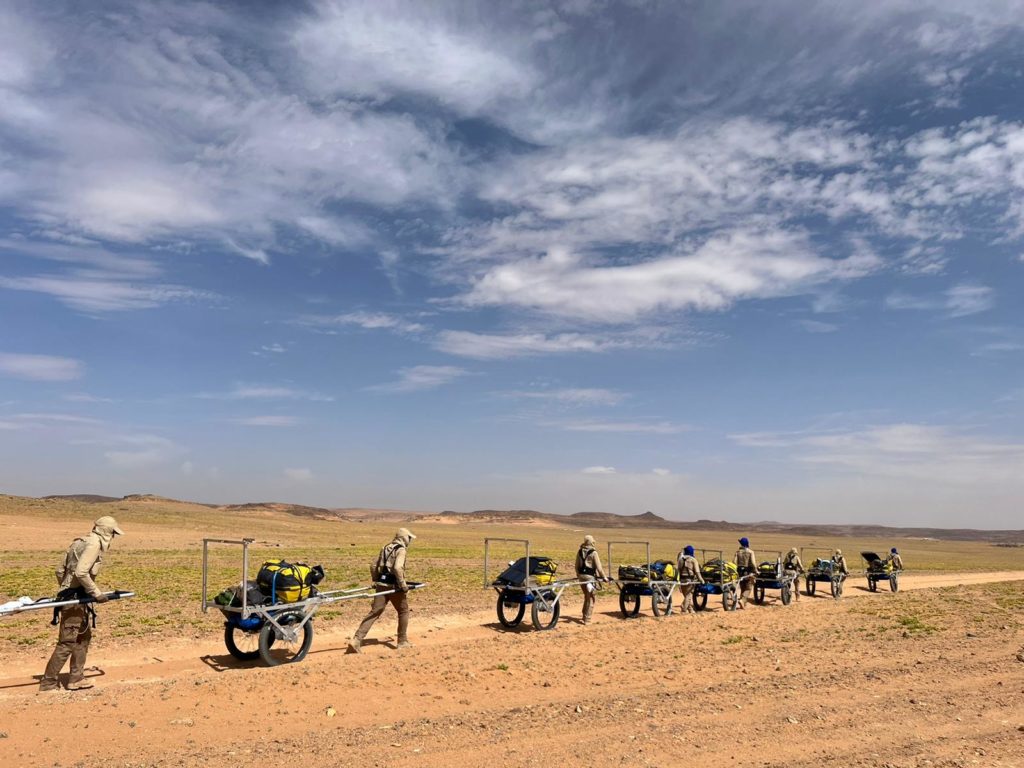
The Deep Climate team, led by Christian Clot, has been walking since 16 May in the Nefoud desert, in the heart of the King Salman Reserve, created to protect this territory. An area of rocks and sands, dunes and plateaus, which is as fascinating as it is fearsome, with temperatures exceeding 40°C in the shade every day, and nights at over 30°C, in total isolation.
This environment will put the climatonauts’ team to the test. Because the problem of heat is not only the temperature. The constancy of these same temperatures is a much more dangerous parameter. Living for several days, weeks in a row, in very hot temperatures, exceeding 40°C during the day and not dropping sufficiently at night – staying above 25°C for example – is particularly painful and impacting on our organisms, even more so for people not used to these conditions.
Each day, the team will make progress over this hostile terrain, pulling carts loaded at the beginning of each stage with more than 120 kilos of water, food, but also expedition and scientific equipment. They will make a completely new autonomous crossing on foot, in three stages, including two wells that will be obligatory crossing points. In total, they plan to cover 320 kilometres, nearly two-thirds of which will be in the sandy dunes.
“For two missions now, we have been increasing the intensity of our progress and the impact on the human beings in the environments we cross. But the step is very high here as the conditions seem to be out of proportion. But I have confidence. Confidence in this team that has been built up over the course of the crossings, in what we have put in place as a method of progress, in what we want to achieve. And even more so in the immense need to bring back scientific data, as we lack knowledge in real conditions of these extreme heats, which are becoming a little more of a reality every day,” explained Christian Clot at the time of departure.
Dozens of protocols in the desert heat
During its progress, the team will carry out dozens of scientific protocols to understand the human capacity to adapt to changes and new climates, both in physiological and cognitive terms. They will collect a great deal of data to observe thermoregulation, vascular, cardiac, microbiotic and other changes, as well as cognitive, emotional and sensory changes that are still poorly understood.
All this without forgetting the data about the collective organisation and the way in which the team, as a social group, is able to adapt to this type of condition. This is fundamental data for understanding the real impact of such climatic conditions on humans and for proposing solutions to reduce the risks to physical and mental health, especially for the most vulnerable populations.
The crossing of the Nefoud desert is the third and final stage of the Deep Climate expedition triptych. To be followed on the social networks of the Human Adaptation Institute and Christian Clot !

